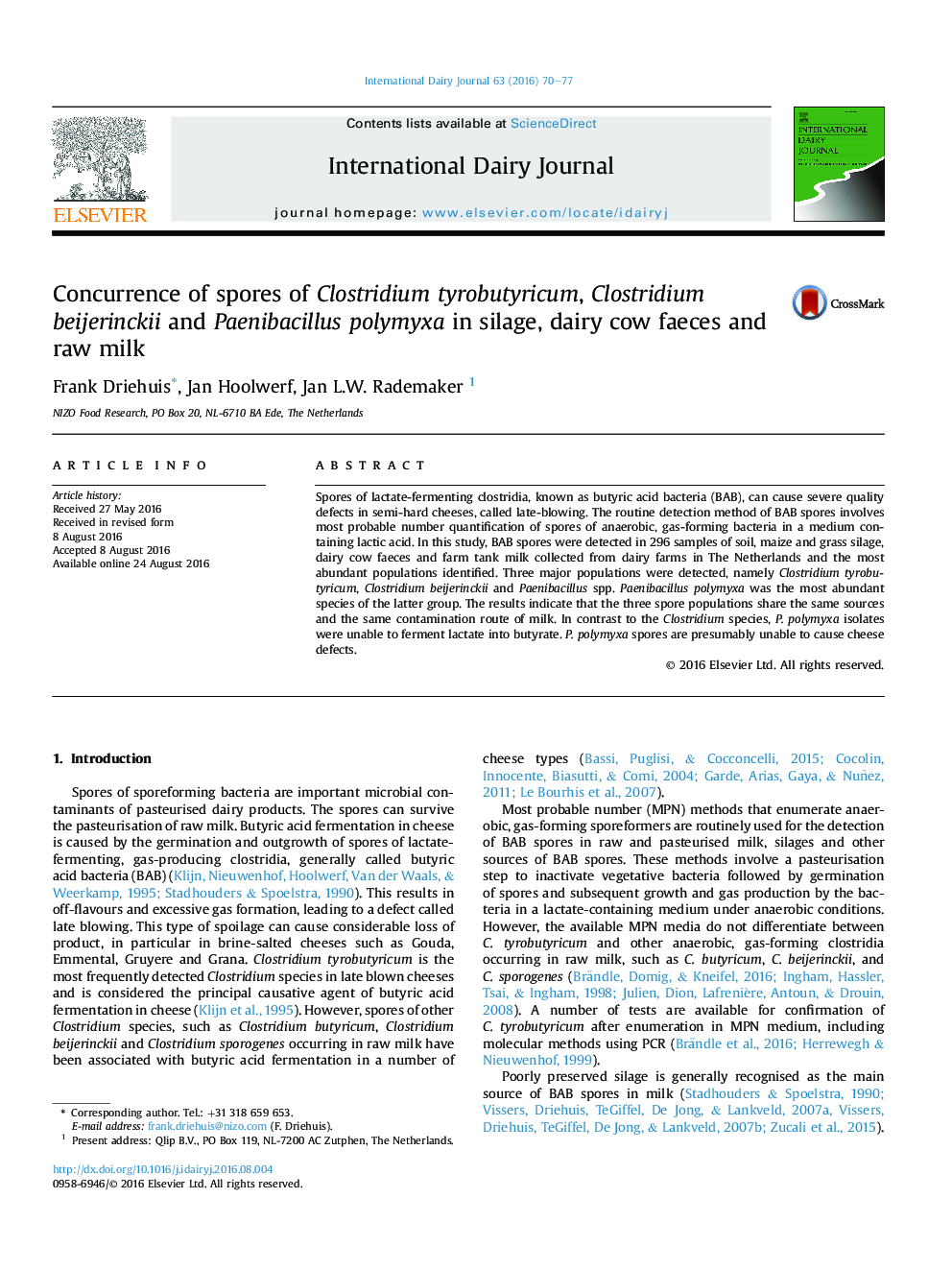| کد مقاله | کد نشریه | سال انتشار | مقاله انگلیسی | نسخه تمام متن |
|---|---|---|---|---|
| 2433861 | 1553667 | 2016 | 8 صفحه PDF | دانلود رایگان |

Spores of lactate-fermenting clostridia, known as butyric acid bacteria (BAB), can cause severe quality defects in semi-hard cheeses, called late-blowing. The routine detection method of BAB spores involves most probable number quantification of spores of anaerobic, gas-forming bacteria in a medium containing lactic acid. In this study, BAB spores were detected in 296 samples of soil, maize and grass silage, dairy cow faeces and farm tank milk collected from dairy farms in The Netherlands and the most abundant populations identified. Three major populations were detected, namely Clostridium tyrobutyricum, Clostridium beijerinckii and Paenibacillus spp. Paenibacillus polymyxa was the most abundant species of the latter group. The results indicate that the three spore populations share the same sources and the same contamination route of milk. In contrast to the Clostridium species, P. polymyxa isolates were unable to ferment lactate into butyrate. P. polymyxa spores are presumably unable to cause cheese defects.
Journal: International Dairy Journal - Volume 63, December 2016, Pages 70–77